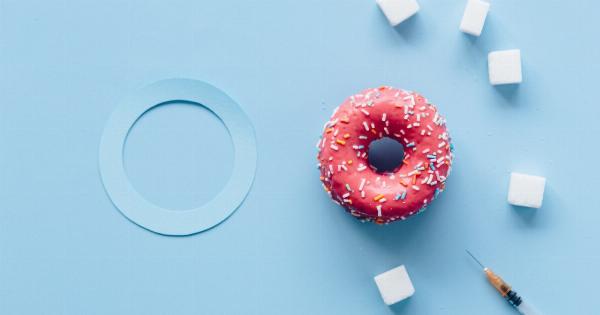With the constant influx of information regarding diet and nutrition, it can be challenging to separate fact from fiction.
Unfortunately, many popular diet myths continue to circulate, often leading individuals down ineffective or even harmful paths in their pursuit of better health. In this article, we aim to debunk some of these prevailing diet myths, offer evidence-based perspectives, and shed light on the truth behind them.
Myth 1: Eating Fat Makes You Fat
For decades, fat was demonized as the primary cause of weight gain and obesity. However, scientific research has shown that the relationship between dietary fat and body fat is much more complex.
While fats do contain more calories per gram compared to carbohydrates and proteins, they also play a crucial role in hormone regulation, insulation, and absorption of vitamins. The key lies in choosing healthy fats, such as those found in avocados, nuts, and olive oil, rather than consuming excessive amounts of saturated and trans fats.
Myth 2: Carbohydrates Should Be Completely Avoided
Carbohydrates, particularly refined grains and sugars, have gained a bad reputation among certain dieting trends. However, not all carbohydrates are created equal.
Complex carbohydrates, like those found in whole grains, fruits, and vegetables, are excellent sources of energy, fiber, vitamins, and minerals. They provide sustained fuel for the body, aid digestion, and can help manage weight when consumed in moderation. Cutting out all carbohydrates can lead to nutrient deficiencies and limit the diversity of the diet.
Myth 3: Crash Diets Are Effective for Long-Term Weight Loss
Crash diets, which promote rapid weight loss through severe calorie restriction, are tempting for their promise of quick results. However, this approach is generally unsustainable and can be harmful to both physical and mental health.
While people may shed pounds initially, much of this weight loss comes from water and muscle instead of actual fat. Furthermore, crash diets disrupt metabolism and often lead to weight regain once normal eating habits resume. It is more effective and healthier to adopt a gradual, balanced approach to weight loss.
Myth 4: Snacking Leads to Weight Gain
The notion that snacking inevitably leads to weight gain stems from the assumption that additional meals or snacks add excess calories to the diet.
However, well-chosen snacks can actually help control hunger, prevent overeating during main meals, and maintain steady blood sugar levels. The key is to opt for nutrient-dense snacks such as fruits, vegetables, or a handful of nuts, rather than reaching for unhealthy processed snacks high in refined sugars and unhealthy fats.
Myth 5: All Calories Are Equal
While it is true that weight loss ultimately comes down to calories consumed versus calories burned, not all calories are equal when it comes to overall health.
The source of those calories plays a significant role in providing essential nutrients and promoting satiety. For example, 100 calories from an apple will offer far more beneficial nutrients and fiber than 100 calories from a can of soda. Focusing on the quality of the calories rather than just the quantity is vital for optimizing nutritional intake.
Myth 6: Skipping Meals Is an Effective Way to Lose Weight
Skipping meals is often assumed to be an easy route to weight loss, but this approach often backfires.
While it may lead to a short-term calorie deficit, it can disrupt the body’s metabolism, triggering the brain to increase cravings for unhealthy, calorie-dense foods. Additionally, skipping meals can result in fatigue, impaired concentration, and nutrient deficiencies. Optimal weight management is best achieved through regular, balanced meals that provide sustained energy and nourishment throughout the day.
Myth 7: Detox Diets Are Necessary to Eliminate Toxins
The idea of detoxing through specific diets or juice cleanses is a common claim in the health industry. However, the concept of detoxification is largely misunderstood. The body has its built-in detox system, primarily performed by the liver and kidneys.
These organs effectively remove waste and toxins from the body without the need for extreme diets or cleanses. Instead, focusing on a balanced diet rich in whole foods and staying adequately hydrated supports the body’s natural detoxification processes.
Myth 8: All You Need is a Protein Shake for a Meal
Protein shakes have gained popularity as a meal replacement or a quick fix for those looking to build muscle or lose weight. While protein shakes can be a convenient option, they should not replace whole meals altogether.
Whole foods provide a range of essential nutrients that cannot be replaced by a simple shake. Additionally, chewing and the act of eating whole foods contribute to a greater feeling of satisfaction and fullness. Protein shakes should be considered as supplements, rather than complete meal replacements.
Myth 9: Eating After a Certain Time at Night Causes Weight Gain
The belief that eating late at night directly leads to weight gain is nothing more than a myth. Weight gain occurs when the total calories consumed exceeds the calories burned over a period of time, regardless of the time of day.
What matters most is the overall quality and quantity of the food consumed throughout the day. However, late-night eating can be problematic if it involves mindless snacking on unhealthy foods or disrupts sleep patterns. Being mindful of portion sizes and choosing healthier options during late-night snacks is advisable.
Myth 10: Drinking Green Tea Boosts Metabolism and Burns Fat
Green tea has been hailed as a metabolism-booster and fat-burner in many dieting circles.
While it does contain certain compounds, such as catechins and caffeine, that may have slight thermogenic effects, the effects on metabolism and fat burning are minimal. Any potential benefits from green tea are outweighed by a well-balanced diet and overall healthy lifestyle.
It is important to recognize that no single food or beverage can magically induce weight loss or compensate for an unhealthy diet and sedentary lifestyle.


























